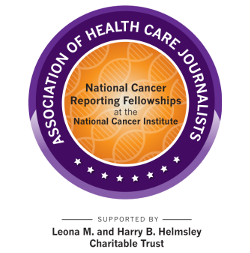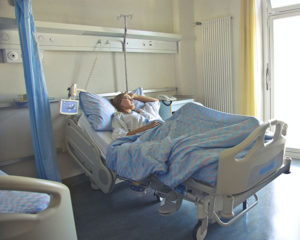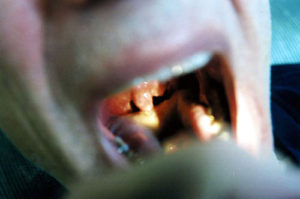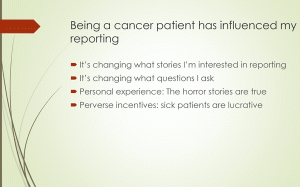Tag
cancer
-
Call for applications opens for AHCJ-National Cancer Reporting Fellowship
A group of journalists will spend three partial days online with experts from the National Institutes of Health in January…

-
Keep an eye out for lead-time bias with COVID-19 deaths
Lead time bias is a well-recognized challenge especially when it comes to studies and statistics looking at cancer screenings. As…

-
New data resource offers the lowdown in cancer terms, acronyms and concepts
When I first began writing in health and science journalism, my biggest “micro-beat” was vaccines (and still is). I had…

-
Link between infectious diseases and cancer is an under-reported story
An under-reported public health story is the connection between infectious diseases and cancer. In December 2019, a report in Lancet…

-
Study documents disparities that contribute to late diagnosis of oral cancer
Research has long shown that Americans from minority groups and those with a lower socioeconomic status are less likely to…

-
•
Fellows chosen for 2019 National Cancer Reporting Fellowships
Ten journalists have been chosen for the 2019 class of the National Cancer Reporting Fellowships. AHCJ will be presenting the…

-
Could financial conflicts be influencing cancer care guidelines?
Physicians in all fields of medicine rely on guidelines developed by professional medical organizations to inform how they care for…

-
Covering health care – as a cancer patient
Alexandra Glorioso, a Florida health reporter for Politico, joined AHCJ for a webcast about what being diagnosed with stage 2…

-
•
Panelists break down the realities of precision medicine and immunotherapy
Are precision medicine and immunotherapy overhyped as cancer treatments, or do they hold such tremendous promise that we are only…

-
Speaker spotlight: Brawley to discuss health disparities, cancer
Occasionally doctors are apt to make claims, especially when money is involved, that are not based in science or fact.…









